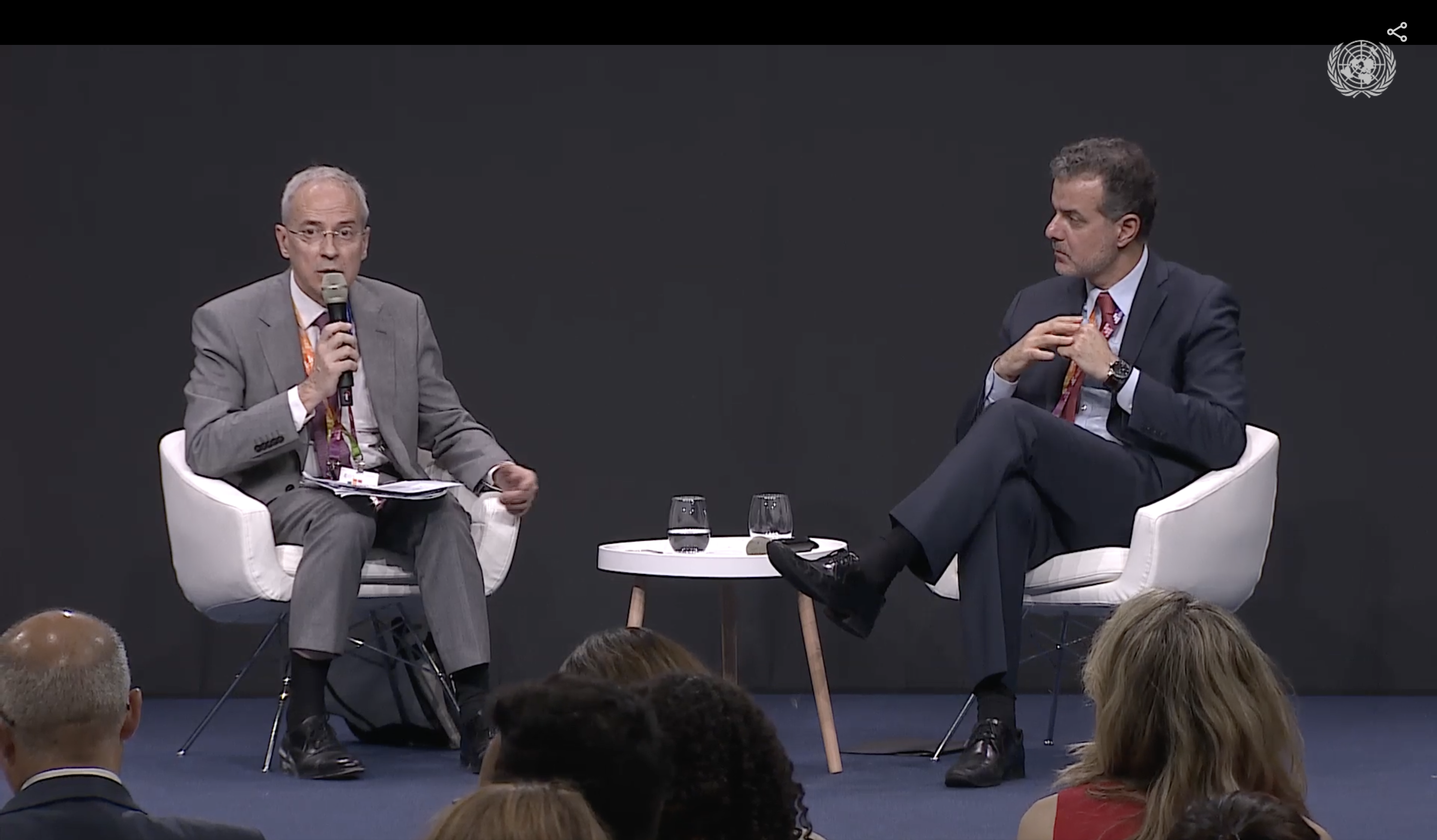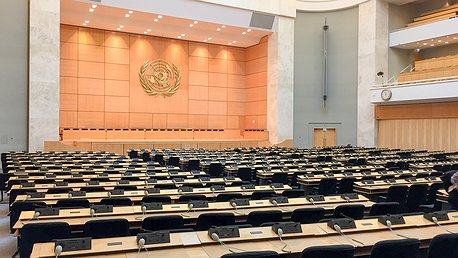The announcement was delivered by Spain's Vice-Minister of Finance, Jesús Gascón (left) and José Gilberto Scandiucci, and Brazil's Minister-Counselor of the Permanent Mission to the UN (right).
A promising move that builds on momentum from Latin America and offers a path forward through coalitions of the willing in a shifting multilateral landscape.
Spain and Brazil’s joint proposal to advance the global taxation of the super-rich, just announced at the UN’s Fourth International Conference on Financing for Development, is a welcome and timely step toward addressing one of the root causes of today’s extreme inequality. By pushing for fairer taxation of large fortunes, the initiative rightly frames wealth redistribution as essential for reducing social divides, restoring trust in democracy, and financing the realization of rights.
Billionaires globally are taxed at an average of just 0.3% to 0.4% of their wealth: far less than what ordinary taxpayers pay. This extremely low rate stands in stark contrast to the sheer scale of their fortunes: as of 2025, the world's 3,028 billionaires collectively control $16.2 trillion in wealth, a number higher than every country in the world with the exception of China and the US. The Spain–Brazil proposal responds directly to this injustice, positioning wealth taxation as a necessary tool for redistribution and rights fulfillment.
The initiative builds on the political momentum created at the 2024 G20 summit in Rio, where countries agreed for the first time to cooperate on taxing high-net-worth individuals. Crucially, this initiative builds on the leadership already shown by governments in Latin America and the Caribbean through the Plataforma Tributaria de América Latina y el Caribe (PT-LAC), launched in 2023 to coordinate regional responses to international tax challenges and promote more equitable fiscal policies. Civil society has played a key role in this effort, shaping proposals through the PT-LAC Social advisory group — a space in which we participate as part of the Initiative for Human Rights in Fiscal Policy, alongside regional partners working to advance fiscal transformation grounded in human rights.
The Spain–Brazil announcement is also a clear example of what CESR and others have recently called for: coalitions of the willing to push forward concrete, rights-based structural solutions. South Africa's decision to join the initiative further strengthens this momentum. One of the clearest lessons from recent global negotiations is that the multilateral landscape is shifting. Global consensus is no longer a requirement for meaningful progress. In the face of political gridlock, determined alliances like this one are already demonstrating what is possible.
We welcome the proposal’s recognition that civil society and international institutions must be part of the process. But the real test is whether this initiative delivers meaningful redistribution of resources and power to enable rights-fulfilling public services, climate justice, and economic systems that serve people.
The concentration of extreme wealth is not inevitable. It is the result of decades of policy choices. With this initiative, Spain and Brazil are showing that different choices are possible and necessary. Other countries should join them, strengthen the effort, and ensure that taxing the super-rich becomes a global norm, not an exception.



